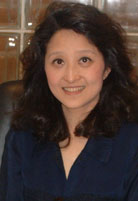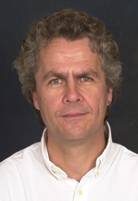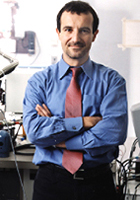Yuan Chang

Yuan Chang was a codiscoverer of the Kaposi’s sarcoma-associated herpesvirus (KSHV, also known as human herpesvirus 8). KSHV, the most recently discovered virus linked to human cancers, is the cause of Kaposi’s sarcoma, the most common cancer in AIDS patients. Infection with KSHV can also lead to a type of B-cell lymphoma and Castleman’s disease, a noncancerous but severe disorder characterized by enlargement of the lymph nodes.
For decades, Kaposi’s sarcoma was believed to be caused by an infectious agent. But until Dr. Chang and her husband and collaborator, Patrick Moore, discovered KSHV in 1994, the virus that causes the disease remained unknown. Infection with the virus is uncommon in North America and usually doesn’t cause symptoms in healthy individuals. But in parts of Africa, KSHV infection is much more widespread, and Kaposi’s sarcoma can be the most common cancer in the population. Individuals who are infected with KSHV and whose immune systems are suppressed, such as those with HIV/AIDS, have a high likelihood for developing one of the KSHV-associated disorders.
“Yuan Chang’s discovery of KSHV was a seminal breakthrough that has enabled all subsequent understanding of how the virus causes disease, as well as the diagnosis and potential treatment of KSHV infection,” says Elliott D. Kieff, Harriet Ryan Albee Professor of Medicine and a professor of microbiology and molecular genetics at Harvard Medical School. “Her basic and clinical research has transformed our understanding of the most common malignancy in people infected with HIV.”
Since discovering KSHV, Dr. Chang has continued to study the biology of the virus. In 1996, she and her colleagues published the DNA sequence of KSHV, revealing that the virus has pirated several cellular genes that have proven useful in understanding the properties of other tumor viruses.
We are studying the genes in KSHV to gain insights into the processes in cells that lead to cancer,” Dr. Chang says. “The virus carries genetic material that causes cancer into cells. We are finding that the same pathways affected by these viral genes are also altered in cancers not caused by viruses.”
Dr. Chang is a Professor of Pathology in the Department of Pathology at the University of Pittsburgh Cancer Institute in Pennsylvania. She received her MD degree from the University of Utah College of Medicine in Salt Lake City. She was a resident in anatomic pathology at the University of California, San Francisco, and did a fellowship in neuropathology at Stanford University.
Go to Yuan Chang’s Web page at The University of Pittsburgh Cancer Institute.
John F.X. Diffley

John F.X. Diffley was recognized for his work exploring DNA replication. Proper DNA replication is essential to maintaining the integrity of the genome, and loss of this integrity can lead to cancer. Working primarily with yeast, Dr. Diffley has studied how replication begins, the mechanisms that ensure replication is triggered only once during each cell cycle, and what happens when replication is not initiated properly.
“The extraordinary clarity of his observations, the crispness of his data, and the beautiful logic of his ideas and discoveries have been characteristic of John’s research,” says Bruce Stillman, Director and Chief Executive Officer of the Cold Spring Harbor Laboratory on Long Island, New York, who was Dr. Diffley’s postdoctoral advisor. “He has always addressed important problems and has been at the forefront of solving them. I would venture to say that John is one of the best scientists today who focuses on how our genome is inherited from one cell generation to the next.”
Dr. Diffley’s work has led to the discovery of several important proteins involved in DNA replication. In the late 1980s, he isolated the first protein known to be involved in binding to chromosome origins, called ABF1. Origins are the sites where replication is initiated, and this protein plays a role in that initiation. In 1992, his laboratory helped describe a protein called ORC, which is required to initiate replication. Since then, his team has discovered and characterized several other proteins required for DNA replication to begin, including one called the prereplicative complex. He also contributed to work showing that cyclin-dependent kinases — enzymes that act as switches to control the progression of the cell cycle — can both trigger and prevent initiation, depending on what is going on inside the cell.
Dr. Diffley also has characterized the effects of DNA-damaging agents (such as radiation and certain drugs) on replication and found that the checkpoint where DNA damage occurs plays a central role in regulating the response of replication to this damage. This response is important: When DNA is damaged, the cell must stop dividing so the error can be repaired and not be passed on to other cells.
“There is still much to learn about the basic mechanisms of replication. But at the same time, we are shifting our focus to understanding how the misregulation of replication leads to tumor formation,” Dr. Diffley says. “We are also translating the work we’ve done in yeast to human cells, in particular how targeting DNA damage checkpoints might lead to new approaches for killing cancer cells.”
Dr. Diffley is a Principal Scientist at Cancer Research UK London Cancer Research Institute. He received his PhD degree in Biology from New York University and did a postdoctoral fellowship at Cold Spring Harbor Laboratory on Long Island.
Go to John Diffley’s Web page at Cancer Research UK.
Nikola Pavletich

Nikola Pavletich leads a laboratory that uses x-ray crystallography to discern the three-dimensional structures of proteins involved in cancer. “Molecular structures can help explain cancer development and spread and a tumor’s response to chemotherapy,” he says. “An understanding of what these molecules look like, the properties of their shapes, and how these shapes might fit with other molecules is extremely valuable for developing anticancer drugs.”
In 1994, Dr. Pavletich produced the first three-dimensional image of the p53 tumor suppressor, which normally puts the brakes on rampant cell growth. Abnormalities in p53 have been implicated in nearly half of all human cancers. In the following years, he and his team elucidated the structures of proteins that run the cell’s growth program — termed the cell division cycle — showing how they control growth and how their mutation contributes to cancer. In 2002, Dr. Pavletich discovered a new function for BRCA2. Mutations in the BRCA2 gene can increase the risk of breast and ovarian cancers. By showing that the structure of the BRCA2 protein is similar to other proteins that bind broken DNA strands, Dr. Pavletich and his colleagues demonstrated that BRCA2 interacts directly with DNA to help repair genetic damage. An inability to correct this damage can lead to cancer.
“In a number of prominent cases, the protein structures solved by Nikola’s laboratory were either firsts in the field or at least one of the first analyses of their kind,” says David M. Livingston, Emil Frei Professor of Genetics and Medicine at Harvard Medical School and a leading cancer biologist. “The sheer output of such structures has been extraordinary. Yet in addition to this volume, a remarkable depth of new insight into fundamental biochemical and biological mechanisms has emerged from his razor-sharp interpretations. Reading Nikola’s papers has repeatedly transformed my understanding of how key molecular events occur.”
Dr. Pavletich hopes to apply his research and lead others in the program to see how structural biology can enhance the development of more effective anticancer drugs. “Structural biology can help streamline drug discovery by delineating the structures of target proteins bound to compounds that are marginally effective, laying down a road map for improving the compounds and making them into real drugs,” he explains. “Investigators can also analyze the structures of aberrant proteins involved in cancer to pinpoint potential targets to which anticancer drugs might bind.
Dr. Pavletich is Chairman of the Structural Biology Program and leads the Laboratory of Structural Biology of Oncogenes and Tumor Suppressors at the Sloan Kettering Institute. He is also the Stephen and Barbara Friedman Chair. He received his PhD degree from the Johns Hopkins University School of Medicine and did a postdoctoral fellowship at the Massachusetts Institute of Technology.
Go to Nikola Pavletich’s Web page at Sloan Kettering Institute.